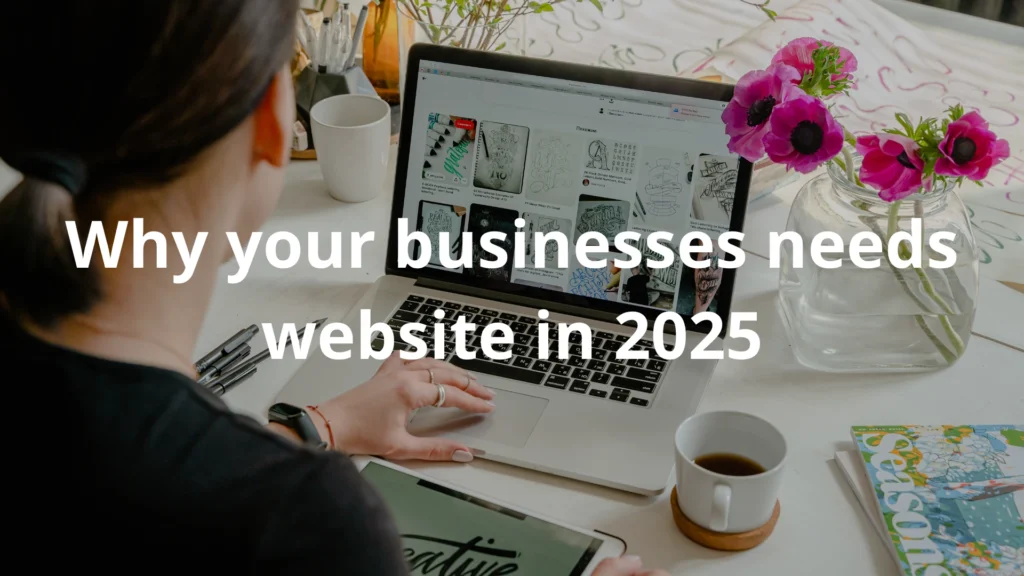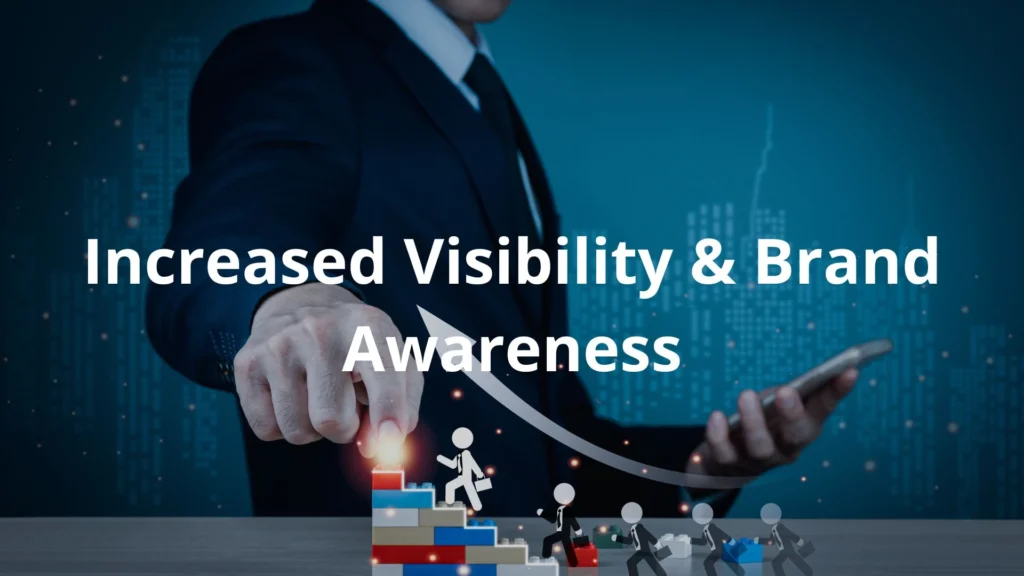
Introduction
In an increasingly digital world, the way businesses engage with their customers is evolving rapidly. Traditional brick-and-mortar stores and offline marketing methods are no longer sufficient to keep up with the competitive pace. A strong online presence has become a fundamental necessity for businesses to thrive in today’s market. In 2025, the importance of a website for any business, no matter how big or small, cannot be overstated.
A website is no longer just a luxury or an afterthought; it’s a vital tool that helps businesses create a credible presence, build relationships with customers, and expand their reach. As we move deeper into the digital age, customers expect seamless, user-friendly experiences and easy access to information at their fingertips. Without a website, businesses risk falling behind the competition and missing out on valuable opportunities.
This article will explore the key reasons why your business needs a website in 2025 and outline the essential features required for a successful online presence.
Key Benefits of having a Website
1. Increased Visibility & Brand Awareness
One of the primary reasons your business needs a website is to increase its visibility and brand awareness. With more people relying on the internet to find products and services, a website ensures that your business is discoverable by a larger audience. Here’s how it works:

– Search Engine Optimization (SEO): A well-optimized website is essential for ranking higher on search engines such as Google. By implementing SEO best practices—such as using relevant keywords, optimizing metadata, and creating high-quality content—your website can appear at the top of search results, making it easier for potential customers to find you.
– Social Media Integration: Today, social media is a powerful tool for connecting with customers and promoting your brand. A website with integrated social media links allows customers to easily follow your business across different platforms. Additionally, social sharing buttons on your website can encourage visitors to share content with their networks, increasing your reach exponentially.
By improving your online visibility through SEO and social media integration, a website helps position your business as a leader in your industry and ensures that your brand is consistently in front of your target audience.
2. 24/7 Accessibility & Customer Convenience
In today’s fast-paced world, customers expect immediate access to information and services. A website offers the convenience of 24/7 availability, allowing your customers to engage with your business at any time, even when your physical store is closed. Here’s why this is crucial:
– Easy Access to Information: With a website, customers can easily find essential details about your products, services, pricing, and business hours without needing to call or visit in person. This convenience saves time and improves the overall customer experience.
– Online Ordering and Payments: In 2025, online shopping is not just a trend—it’s a necessity. With an eCommerce-enabled website, customers can browse products, place orders, and make secure payments anytime and anywhere. This convenience not only boosts sales but also strengthens customer loyalty.
A website’s availability around the clock enables businesses to cater to customers across different time zones, providing an advantage over competitors with limited operating hours.
3. Building Trust & Credibility
Trust and credibility are vital in any business relationship. In 2025, customers are highly discerning, and they prefer to do business with companies they trust. A professional website is one of the best ways to build trust and establish a strong online reputation.

– Professionalism: A well-designed website reflects the professionalism of your business. It shows that you’re invested in your brand and committed to offering a positive experience for your customers.
– Customer Testimonials and Reviews: Social proof is one of the most powerful ways to build credibility. Incorporating customer reviews, testimonials, and case studies on your website can help potential customers feel confident in your products or services. Positive feedback from satisfied clients can go a long way in attracting new business and strengthening your brand’s reputation.
By offering a trustworthy, professional website, you provide the reassurance that potential customers are looking for before they make a purchase or engage with your business.
4. Data Collection & Analytics
A website is not only a marketing tool but also a powerful data collection system. Through the use of analytics, businesses can gather valuable insights into customer behavior, preferences, and engagement patterns. These insights can be used to optimize marketing strategies, improve user experience, and boost sales.

- Website Traffic Analysis: Tools like Google Analytics provide businesses with in-depth data on website traffic, including how visitors are finding your site, what pages they’re viewing, and how long they’re staying. This data helps you identify trends, measure the effectiveness of marketing campaigns, and pinpoint areas for improvement.
- Customer Insights: By analyzing customer interactions on your website, you can better understand their needs, interests, and pain points. This information can guide product development, content creation, and targeted marketing campaigns, helping your business stay ahead of customer demands.
Data-driven decisions allow businesses to optimize their online presence and deliver a more personalized experience to their customers.
5. Cost-Effectiveness
In comparison to traditional advertising methods, maintaining a website can be incredibly cost-effective. Rather than spending large sums on print ads, TV commercials, or billboards, a website allows you to reach a broader audience for a fraction of the cost. Here’s how:

– Reduced Marketing Costs: Digital marketing strategies, such as SEO, content marketing, and social media marketing, are significantly more affordable than traditional methods. With a website, businesses can take advantage of these cost-effective strategies to promote their brand and reach a global audience.
– Automation: A website can automate many business processes, saving time and reducing overhead costs. Features like automated lead generation forms, customer support chatbots, and email marketing integration can streamline operations and improve efficiency, allowing you to focus on growing your business.
By investing in a website, businesses can achieve a high return on investment while minimizing marketing and operational costs.
Website Essentials for 2025
To ensure your website is effective and stays competitive in 2025, certain essential features and practices must be incorporated. Here are the key elements that businesses should focus on:
1. Mobile-First Design
With mobile internet usage surpassing desktop usage, it’s imperative that your website is designed with mobile users in mind.

With mobile internet usage surpassing desktop usage, it’s imperative that your website is designed with mobile users in mind. A mobile-first design ensures that your site is responsive, meaning it automatically adjusts to fit various screen sizes and devices, such as smartphones, tablets, and desktops. A mobile-optimized website improves user experience, enhances SEO, and ensures that your business remains accessible to a larger audience.
2. Fast Loading Speed
Website speed is a critical factor that affects user experience and search engine rankings. A slow-loading website can lead to higher bounce rates, as users are more likely to leave a page that takes too long to load.

Google also factors loading speed into its search algorithm, meaning slow websites are less likely to rank well in search results. Ensuring that your website loads quickly—within three seconds or less—is crucial for both user satisfaction and SEO.
3. High-Quality Content
Content is the backbone of any successful website. In 2025, businesses must prioritize creating valuable, informative, and engaging content that resonates with their target audience.
This includes blog posts, product descriptions, videos, and infographics that address customer pain points, answer questions, and showcase the benefits of your products or services.
High-quality content not only boosts SEO but also positions your business as an authority in your industry, attracting more visitors and building trust.
4. Strong Calls-to-Action (CTAs)
To drive conversions and encourage user interaction, your website must have strong calls-to-action (CTAs).

These are prompts that encourage visitors to take specific actions, such as signing up for a newsletter, downloading a guide, or making a purchase. Clear, compelling CTAs can significantly improve conversion rates and help you achieve your business goals.
5. Security Measures
As cyber threats continue to rise, website security has become a top priority. In 2025, businesses must ensure that their website is secure by implementing measures such as SSL certificates and data encryption. These technologies protect customer information, such as credit card details and personal data, and help prevent hacking attempts and data breaches.
A secure website not only protects your customers but also enhances your business’s credibility and trustworthiness.
Conclusion
In conclusion, having a website in 2025 is no longer optional—it’s a necessity for business success. A well-designed website offers numerous benefits, including increased visibility, 24/7 accessibility, trust-building, data collection, and cost-effectiveness. By incorporating essential features like mobile-first design, fast loading speed, high-quality content, and strong security measures, businesses can ensure they stay competitive in the ever-evolving digital landscape.
As we look to the future, website development will continue to evolve with advancements in artificial intelligence, virtual reality, and personalized user experiences. By staying ahead of these trends and investing in a professional website, businesses can position themselves for long-term success and growth.